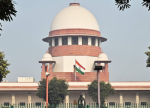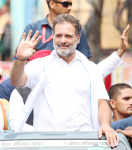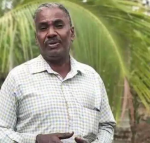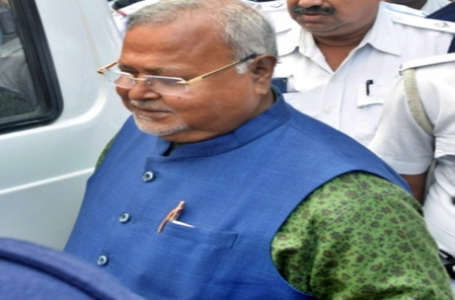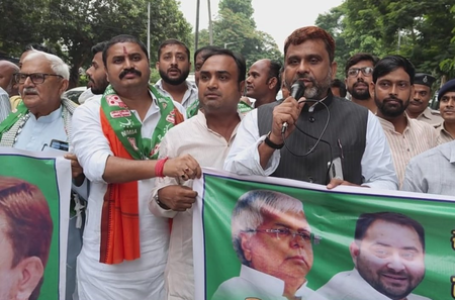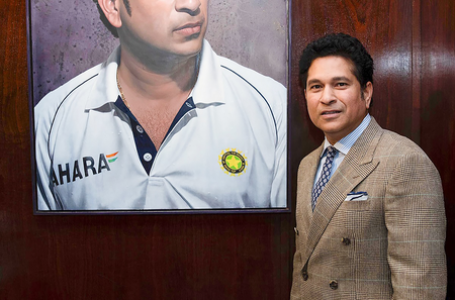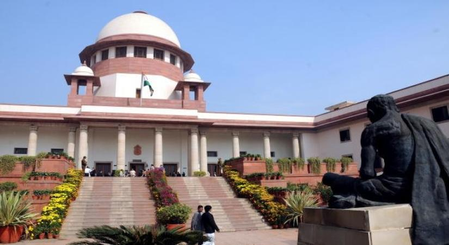
New Delhi: The Supreme Court on Thursday reserved its decision on the reference made by the President under Article 143 of the Constitution, seeking the top court’s opinion on whether timelines can be imposed on Governors to act on Bills passed by state legislatures in the absence of a constitutionally-prescribed time limit.
A Constitution Bench headed by Chief Justice of India B.R. Gavai dealt with oral arguments spread over 10 days from Attorney General R. Venkataramani and Solicitor General Tushar Mehta for the Centre, as well as from Opposition-ruled states including Tamil Nadu, West Bengal, Kerala, Karnataka, Telangana, Punjab, and Himachal Pradesh, opposing the Presidential reference.
On July 22, a five-judge Bench, comprising Justices Surya Kant, Vikram Nath, P.S. Narasimha, and Atul S. Chandurkar, issued notices to the Centre and all state governments in the matter titled “In Re: Assent, Withholding or Reservation of Bills by the Governor and the President of India” and called for the assistance of AG Venkataramani, the highest law officer of the Union of India.
In the aftermath of the apex court verdict in the Tamil Nadu Bills case, President Droupadi Murmu, in May this year, had asked the apex court to report its opinion on options available to a Governor when a Bill is presented to him under Article 200 of the Constitution.
Earlier, in April 2025, a two-judge Bench of the Supreme Court, using its inherent powers under Article 142 of the Constitution, resolved a standoff between the Tamil Nadu government and Governor R.N. Ravi over the delay in granting assent to Bills passed by the Assembly.
It ruled that Governor Ravi’s refusal to approve 10 Bills in Tamil Nadu was both “illegal and arbitrary” and set a three-month deadline for Presidential and gubernatorial approval of Bills passed by the legislature for a second time.
“The President is required to take a decision on the Bills reserved for his consideration by the Governor within a period of three months from the date on which such reference is received,” said a Bench of Justices J.B. Pardiwala and R. Mahadevan.
If there is no decision within this time frame, states are entitled to file writ petitions seeking a writ of mandamus against the President, the Justice Pardiwala-led Bench clarified.
The apex court used its extraordinary powers for the purpose of declaring the 10 withheld Bills as deemed to have been assented to on the date when they were presented to the Governor after being reconsidered by the state legislature.
The top court held that once a Bill is returned, re-passed by the legislature, and presented again to the Governor, it is not open for the Governor to reserve it for the President’s consideration.
The judgment, apparently, brought Presidential actions under judicial review by favouring a three-month deadline for granting assent to Bills, promoting the President to make a reference under Article 143 of the Constitution.
Article 143 provides that the President may invoke the advisory jurisdiction of the Supreme Court on matters of public importance or constitutional interpretation.
In the reference, President Murmu asked the apex court, “Is the Governor bound by the aid and advice tendered by the Council of Ministers while exercising all the options available with him when a Bill is presented before him under Article 200 of the Constitution of India?”
Further, the Presidential reference questioned if the exercise of constitutional discretion by the Governor on Bills is justiciable when Article 361 of the Constitution puts an absolute bar to judicial review in relation to gubernatorial actions.
“In the absence of a constitutionally-prescribed timeline and the manner of exercise of powers by the President, can timelines be imposed and the manner of exercise be prescribed through judicial orders for the exercise of discretion by the President under Article 201 of the Constitution of India?” the President asked the top court to consider and report its opinion thereon.
IANS




